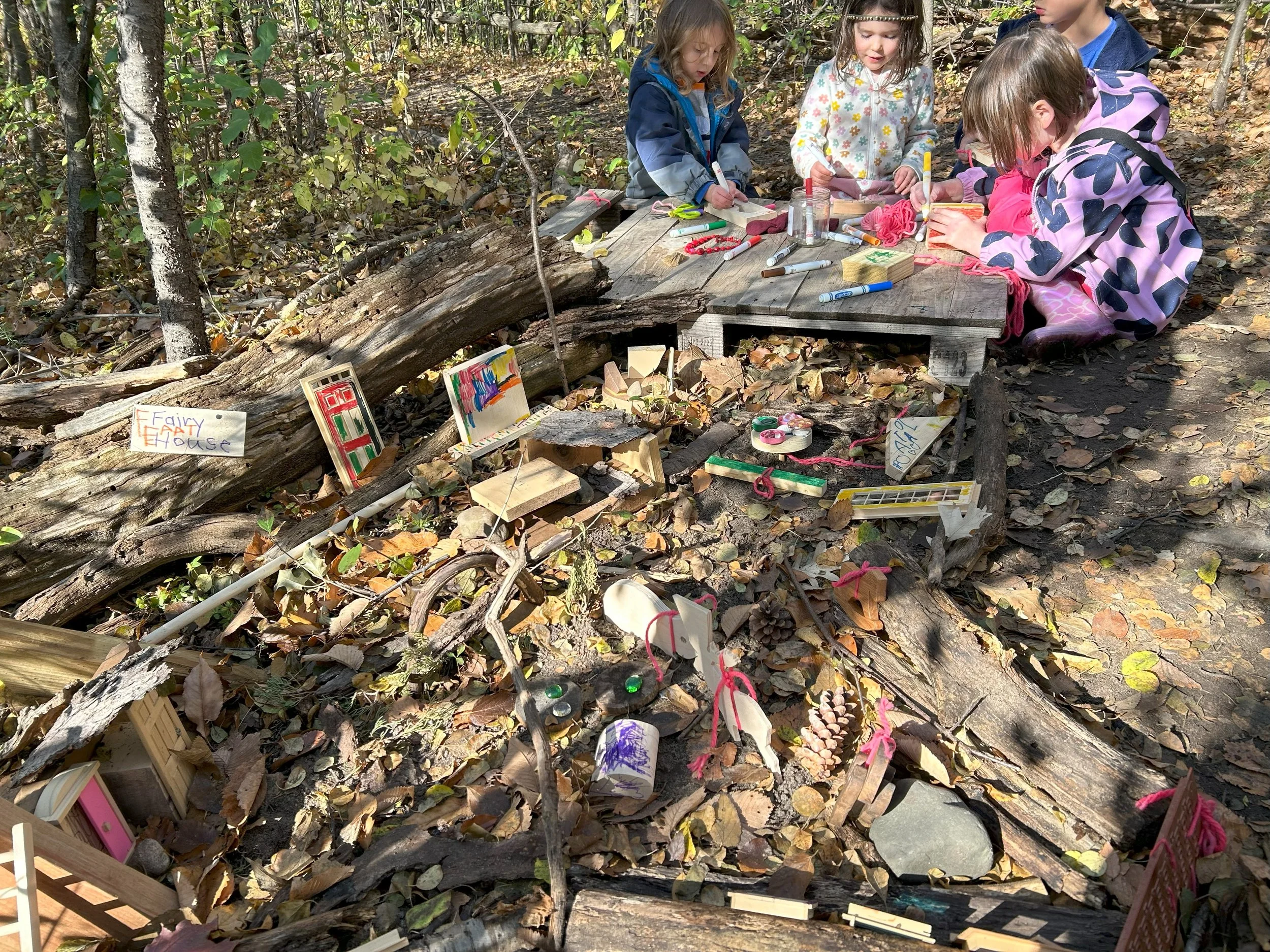All Seasons Blog
Creating the Conditions for “Flow”
Have you ever experienced a time when you’ve been so deeply immersed in an activity that you were not aware of the passage of time? When you lost all self-consciousness and were entirely focused on what was in front of you?
A Boomerang Launch From All Seasons
As June approaches, teachers feel the approaching transition. Seeing our graduates head out the little door for the last time as our students is bittersweet, but we take comfort knowing what they carry with them as they leave and the knowledge that they will be back.
Home-to-School Connections
In the Spring Room, we wanted to strengthen the connection between home and school by asking our students to share their favorite places outside of school. We emailed families and encouraged them to discuss with their children and send in pictures of these favorite spots. Once we received the photos, we created a poster board showcasing the children's favorite places and included notes about what they love about each location. The children then took turns standing in front of the class to share their favorite places with their classmates, teachers, and visiting grandparents.
Children As Superheroes
What does a superhero look like to you? Do you have invisible powers or a cape that helps you fly? Superheroes look different to everyone. They could be a mom or dad taking care of their baby or a doctor giving medicine to someone who is sick. In the Autumn Room “superhero” play takes on many faces.
Why Repeated Reading Matters For Preschoolers
“Will you read us a story?” Every day while eating their lunch, the children ask this same question.
“Sure!” I respond. “In fact, I just switched out the books and have some new ones in here!” I head to the bookshelf in search of a new book that I haven’t read to them before. But before I get there, I always hear, “Can you read the germ book?” It doesn’t matter that I’ve already read it twice today in class, or that I read it last lunch period…and the one before…and the one before that….
The Joy Of Music
Music is a form of connection we use with the seniors in memory care. The children are delighted to hand the bells and shakers to the grandmas and grandpas and enjoy teaching them the new songs we’ve learned. The grandmas and grandpas sing along with us, smiles wide on their faces, laughing as the children move in silly ways and suggest funny ways to change the songs. “There’s a dinosaur chasing us in our boat! Hurry, let’s row our boat quickly!” I continue to be amazed at the creativity they show while engaged in song and dance.
Taking A Step Back
When we adults jump in to rescue children from these situations, we have the best of intentions: preventing water from spilling all over the floor, wanting to be helpful, or needing to get out the door quickly and get on with our day. But what do children lose if we adults always step in and help them?
Using the Art Studio to Spark Storytelling
Story Journals have been an integral part of All Seasons’ curriculum since day one. Some years children flock to their journals, and sometimes the children’s interest is drawn in other directions, and they need a gentle push to reignite the use of the journals. Attempting to fan the flames, recent visits to the Inver Glen Art Studio have included a focus on storytelling.
Growing Winter Gear Skills: Tips For Dressing Kids For The Cold
There are strategies and alternatives to ease at least some of the pain of prepping for the elements. I can’t promise you perfection, but these tips might offer hope for progress and fewer palpitations.
Embracing Outdoor Play in All Weather
Outdoor play in all weather conditions is incredibly important for young children. Not only does it contribute to their physical health, but it has a profound impact on their mental and emotional well-being.
Finding Magic With Friday Friends
Supporting the development of magical moments in nature is a powerful tool for empowering the children’s imaginations and sense of play. Seeing the children fully immerse themselves in imaginative play outdoors inspires me to dig into my own sense of wonder. Fairies have been a catalyst for imaginative play these last few months in the Winter Room.
Learning To Find Community
What I’m noticing happening over these four years of teaching is that by being the teacher I want to be, I am becoming the person I want to be. I model and encourage connection with the seniors, see the positive reaction of both seniors and preschoolers, and, in this supportive environment, soon a self-sustaining cycle is established.












